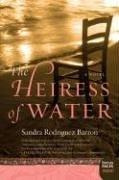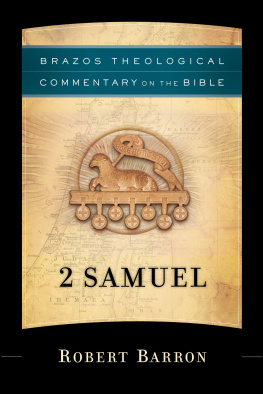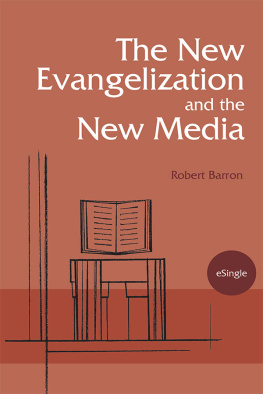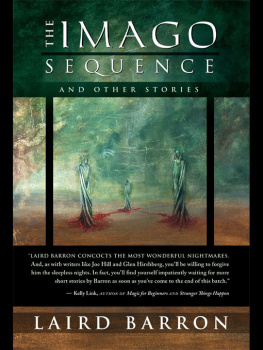Sandra Rodriguez Barron - Stay with Me
Here you can read online Sandra Rodriguez Barron - Stay with Me full text of the book (entire story) in english for free. Download pdf and epub, get meaning, cover and reviews about this ebook. year: 2010, publisher: Harper Paperbacks, genre: Detective and thriller. Description of the work, (preface) as well as reviews are available. Best literature library LitArk.com created for fans of good reading and offers a wide selection of genres:
Romance novel
Science fiction
Adventure
Detective
Science
History
Home and family
Prose
Art
Politics
Computer
Non-fiction
Religion
Business
Children
Humor
Choose a favorite category and find really read worthwhile books. Enjoy immersion in the world of imagination, feel the emotions of the characters or learn something new for yourself, make an fascinating discovery.
- Book:Stay with Me
- Author:
- Publisher:Harper Paperbacks
- Genre:
- Year:2010
- Rating:5 / 5
- Favourites:Add to favourites
- Your mark:
- 100
- 1
- 2
- 3
- 4
- 5
Stay with Me: summary, description and annotation
We offer to read an annotation, description, summary or preface (depends on what the author of the book "Stay with Me" wrote himself). If you haven't found the necessary information about the book — write in the comments, we will try to find it.
Stay with Me — read online for free the complete book (whole text) full work
Below is the text of the book, divided by pages. System saving the place of the last page read, allows you to conveniently read the book "Stay with Me" online for free, without having to search again every time where you left off. Put a bookmark, and you can go to the page where you finished reading at any time.
Font size:
Interval:
Bookmark:
Stay with Me
A Novel
Sandra Rodriguez Barron

Dedication
In loving memory of my father
Juan A. Rodriguez
And for my cherished friend
George H. Wilson
Contents
1979
N ine days after the hurricane, a boat departed from the southern shore of the Dominican Republic, in the early morning hours of September 8. As its twin diesel engines muscled over treacherous, shark-infested waters, the path was illuminated by a resplendent full moon. By the time the For Tuna reached the halfway mark of its journey, the sky had become as blue as the Americans eyes, which were fixed, under the shade of a captains visor, toward U.S. territory.
The boat approached the uninhabited island of Mona, where three-foot iguanas, with their sagging jowls and horned snouts, sauntered out from the caves to sun themselves upon the rocks. A graveyard of crudely made wooden rowboats lay mangled and strewn about on an empty beach, evidence of previous failed attempts of boatpeople to traverse the Mona Passage and make it to Puerto Ricos western shore. The American slowed down and eyed the wrecked boats. She circled Mona Island, searching the beaches, the mouths of the high cliff caves, and the site of the abandoned guano mine. She eyed the rusted, decommissioned lighthouse on the north side and passed around a pair of binoculars. The men surveyed the wild, desolate island from the surrounding waters. Finding no sign of life at all, save a few wild goats roaming a plain, they departed. The For Tuna bucked its way across the choppy surface waters of an abyss that drops down to the deepest point in the Atlantic Ocean. The Americans eyes stung from the salt in the spray that whipped at her face. It was a violent, gut-twisting ride, and when the men grew seasick and began to vomit, her self-doubt threatened to swell into a full panic attack. But she clung to the wheel and reminded herself over and over that land was just fifty miles away. She was deeply comforted by the sound of childrens voices drifting up from inside the cabin, singing Spanish lullabies.
Three hours later, a beautiful sight: Puerto Ricos western shore appeared as a long strip of green along the horizon. Twenty minutes later, the For Tuna s hull cut through a floating carpet of seaweed and hurricane trashpalm fronds, dead fish, empty soda cans, and plastic junk. The American pulled into a docking area a mile south of the city of Mayagez. She tied the For Tuna up to a pier and secured a yellow balloon to the rail of the boat before she left. No one saw her as she hurried down the dock, arms folded over her chest, pressing a tissue to her eyes, sobbing. And no one saw the two dark-skinned men who followed her either. They stepped out of the boat with their heads low, their eyes concealed beneath the brims of their straw hats. One of them wore a black suit; the other was more plainly dressed. The American looked back at the boat several times before she traversed the length of the pier. The men didnt look back at all. Twenty-seven minutes later, two Mayagez police officers arrived at the site of a waterfront condominium and yacht club complex that was still under construction. It had been abandoned for months, after the developer went bankrupt. An anonymous call had tipped off the police to the docking of a suspicious-looking vessel. The identifying balloon was hardly necessarythe For Tuna was the only boat in sight. The officers boarded it with weapons drawn. They found the hatch closed, but not locked. Officer Flores pulled it back and peered into the boats cabin. Without saying a word, he stepped aside, shook his head and let his partner get a look at what was below.
Officer Castillo peered into the dim interior. Curiously, he smelled something that made him think of his infant twins: milky vomit, talcum powder, and soiled diapers. Inside were four toddlers lying across the boats cushioned surfaces, with their eyes closed. They were dressed in outfits befitting a family who could own such a handsome boattwo of the little boys had button-down shirts and dark dress pants, while another was dressed in a princely sailor suit. The girl was wearing a fancy pink, puffy flowered dress.
Where the hell are the parents? Flores said, and the two men scanned the cabin from above. The little boy in the sailor suit lifted his head to look at them. He put his hands over the chests of the two children lying next to him. His eyes lingered on each officers face. Then he lifted one hand and tried to snap his fingers, or perhaps pinch something, but he didnt say anything. His eyes rolled up to one side. He waited. He did it again. They looked at them expectantly, as if he had asked them a direct question and was waiting for a response. Officer Flores looked at his partner. Is that sign language?
Officer Castillo shrugged. He went below, into the spacious cabin and searched the whole boat. He found a fifth child, a little girl hiding under the overhang of an open storage compartment, this one in a white-and-yellow dress. There were no adults anywhere in the vicinity. There werent even any witnesses to question. Officer Flores shouted into his radio, We need medical personnel! I have a boatful of unaccompanied minors! Yes, minors! Children! Nenes ! After the ambulance left with the children, the Coast Guard cutter Borinquen arrived, and the officials all wrote up their reports, taking photographs and securing the vessel. Everyone was expecting the parents to appear at any minute, shouting and looking relieved and explaining the details of some mishap that had separated them from their children. But none appeared, so they followed protocol and prepared for an investigation that they doubted they or anyone else would have time to pursue anytime soon. The items that made it into the evidence file that day were two empty plastic gallon-sized bottles of water, three plastic baby bottles, cloth diapers, some folded childrens play clothes, and a small blanket. One of the little girls clutched an unfinished rag doll without any stitching on the face, which the officers wanted to put in the file, but the little girl threw such a tantrum that they let her keep it. Officer Flores also added that all five of the children had a faded starfish drawn on the tops of their left hands. The drawings, he noted, were sketched with the competence of an adult hand, with a fine-tipped green marker.
There was one item aboard the boat that didnt make it into the evidence file or the notes. Officer Castillo found a can of a Dominican brand of powdered milk on the floor of the boat, stuck behind a cushion. He popped open the lid, and saw that it was still half-full and had a measuring cup inserted into the yellowish-white powder. He sniffed it, took a pinch and rubbed it between his fingers, squinting as he scrutinized the texture of the powder. He turned the can around and around for a moment. Recalling the dark olive skin of at least two of the children, Officer Castillo, whose mother was Dominican born, waited until his partner was not looking, then went up on deck and tossed the can overboard, where it landed among all the other hurricane trash floating around the boat. In the meantime, the American watched him from the roof deck of the defunct condominium building next to the dock, through binoculars.
The discovery of five unaccompanied minors aboard a boat didnt make the news in Puerto Rico that night or in the week that followed. The media coverage was still focused on the death toll and homelessness in the Dominican Republic, and on the virtual obliteration of the Windward Island of Dominica. During the last two days of August, Hurricane David had reached category five strength, with winds that rose to a nightmarish one hundred and seventy-five miles per hour. On August 30, Puerto Rico was spared a direct hit, but it suffered massive property damage and had more than a dozen casualties. President Carter declared it a disaster zone. The next day, David collided with the Dominican Republics capital city, where it took approximately two thousand lives, both on impact and in the subsequent floods. But it grew weak as it crawled across the high mountain range of Hispaniolas interior, so neighboring Haiti had no deaths and very little property damage. On September 4, the Washington Post quoted the Dominican Civil Defense Director as saying, The situation is catastrophic. Hunger is starting to be felt by thousands of country people isolated by blocked roads. While Dominicans got to work digging out mud-caked cadavers, word spread that yet another storm, Frederic, was thundering its way over from Africa. But mercifully, Frederic didnt live up to its potentialat least not in the Caribbean. Frederic staked out its own territory in Alabama and Mississippi, where it took five lives and went on to become the costliest hurricane in U.S. history up until that date.
Next pageFont size:
Interval:
Bookmark:
Similar books «Stay with Me»
Look at similar books to Stay with Me. We have selected literature similar in name and meaning in the hope of providing readers with more options to find new, interesting, not yet read works.
Discussion, reviews of the book Stay with Me and just readers' own opinions. Leave your comments, write what you think about the work, its meaning or the main characters. Specify what exactly you liked and what you didn't like, and why you think so.












